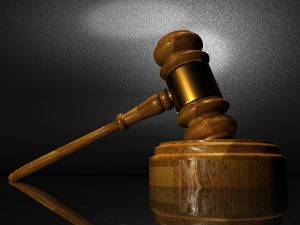Malpractice, Abuse, and Accidents: When to Get a Personal Injury Lawyer
1. What is a Personal Injury Lawyer?
Definition
A personal injury lawyer is a legal professional who specializes in representing clients who have been physically or psychologically injured due to the negligence or wrongdoing of another party. They provide legal representation to individuals who have been injured in accidents, malpractice cases, or instances of abuse. Knowing when to get a personal injury lawyer is a critical step in winning the compensation you deserve.
These lawyers handle a wide range of cases, including car accidents, slip and fall incidents, medical malpractice, workplace injuries, and more. They work to ensure that their clients receive the compensation they deserve for their injuries and losses.
Personal injury lawyers typically work on a contingency fee basis, meaning they only receive payment if they win the case and secure compensation for their client. This fee is usually a percentage of the final settlement amount.

2. What Types of Cases Do Personal Injury Lawyers Handle?
Common Cases
Personal injury lawyers handle a variety of common cases, such as car accidents, motorcycle accidents, truck accidents, slip and fall incidents, and dog bites. These types of cases often result in physical injuries, emotional trauma, and financial losses for the victim.
Additionally, personal injury lawyers also handle medical malpractice cases, where a healthcare provider’s negligence or error results in harm to the patient. These cases are complex and require specialized legal knowledge to navigate successfully. If you’re experiencing one of these cases, this be when to get a personal injury lawyer.
Another common type of case that personal injury lawyers handle is wrongful death claims, where the family members of a deceased individual seek compensation for their loss. These cases can be emotionally challenging, and having a skilled lawyer on your side is essential.
3. When Should I Consider Hiring a Personal Injury Lawyer?
Severity of Injury
Are you wondering when to get a personal injury lawyer? If you have suffered a serious injury that requires extensive medical treatment, rehabilitation therapy, or long-term care, it is crucial to seek the assistance of a personal injury lawyer. They can help you navigate the complexities of the legal system and ensure you receive the compensation you need to cover your medical expenses and other losses.
Additionally, if your injury has resulted in a disability that prevents you from working and earning a living, a personal injury lawyer can help you pursue a claim for lost wages and future earning capacity. They will work to secure a settlement that provides financial security for you and your family. If your injury happened within assisted living facilities or an assisted living community, there may be a deeper investigation that occurs.
Furthermore, if you are unsure about who is liable for your injury or if there are multiple parties involved, a personal injury lawyer can conduct a thorough investigation to determine fault and hold the responsible parties accountable.

4. How Do I Choose the Right Personal Injury Lawyer?
Experience and Expertise
When selecting a personal injury lawyer, it is essential to consider their experience and expertise in handling cases similar to yours. Look for a lawyer who has a proven track record of success in negotiating settlements and winning trials for their clients.
Additionally, choose a lawyer who specializes in personal injury law and has a deep understanding of common local workers compensation lawyer cases and regulations. They will have the knowledge and skills needed to navigate the legal system effectively and advocate for your rights.
It is also important to consider the lawyer’s reputation and client reviews. Reading testimonials from past clients can give you insight into the lawyer’s communication style, professionalism, and ability to achieve favorable outcomes for their clients.
5. What Should I Expect During the Initial Consultation?
Assessment of Case
Knowing when to get a personal injury lawyer is important. During the initial consultation with a personal injury lawyer, they will assess the details of your case, including the circumstances surrounding your injury, the extent of your damages, and any evidence you have collected. They will ask you questions to gather information and determine the strength of your claim.
Additionally, the lawyer will explain the legal process to you, outlining the steps involved in pursuing a personal injury claim and what you can expect from working with them. They will discuss potential strategies for your case and provide you with realistic expectations for the outcome.
The initial consultation is also an opportunity for you to ask any questions you may have about the legal process, the lawyer’s experience, and their fee structure. It is essential to feel comfortable with the lawyer and confident in their ability to represent you effectively.
6. What Costs Are Associated with Hiring a Personal Injury Lawyer?
Contingency Fees
Personal injury lawyers typically work on a contingency fee basis, meaning they only receive payment if they successfully recover compensation for your case. The fee is usually a percentage of the final settlement amount, ranging from 25% to 40% depending on the complexity of the case.
In addition to contingency fees, there may be additional expenses associated with your case, such as court filing fees, expert witness fees, and other legal costs. It is essential to discuss these expenses with your lawyer upfront to understand what you may be responsible for paying throughout the legal process.
Some personal injury lawyers may offer a free initial consultation to assess your case and provide you with an estimate of the potential costs involved in pursuing a claim. This can help you budget for legal expenses and make an informed decision about whether to proceed with hiring a lawyer.
7. How Long Will My Case Take to Resolve?
Factors Influencing Timeline
The timeline for resolving a personal injury case can vary depending on a variety of factors, including the complexity of the case, the extent of your injuries, and the cooperation of the opposing party. Some cases may be settled quickly through negotiations, while others may require litigation and trial.
8. What Compensation Can I Expect to Receive?
Damages Covered
When seeking compensation for your personal injury claim, you may be entitled to recover various types of damages, including medical expenses, lost wages, pain and suffering, emotional distress, and future medical costs. Knowing when to get a personal injury lawyer will save you time and hassle. Your lawyer will work to calculate the total value of your damages to ensure you receive fair compensation, while also factoring in medical insurance and more.
Additionally, in cases involving catastrophic injuries such as spinal cord injuries, or permanent disabilities, you may be eligible for additional compensation for long-term care, rehabilitation therapy, brain injury rehab, dementia care, and adaptive equipment. Your lawyer will advocate for your needs and fight to secure the maximum settlement amount for your injuries.
The amount of compensation you receive will depend on the specific details of your case, the severity of your injuries, and the liability of the responsible party. Your lawyer will work to negotiate a fair settlement or, if necessary, litigate your case in court to ensure you receive the compensation you deserve.

9. Can I Handle the Case on My Own Without a Lawyer?
Pro Se Representation
While it is possible to represent yourself in a personal injury case, known as pro se representation, it is not recommended due to the complexities of the legal system and the potential risks involved. Knowing when to get a personal injury lawyer is crucial. Personal injury law is intricate and nuanced, requiring specialized knowledge and expertise to navigate successfully.
Without the guidance of a skilled personal injury lawyer, you may risk making critical mistakes that could jeopardize your case and result in a lower settlement amount or a denied claim. A lawyer can help you understand your rights, assess the strength of your case, and develop a strategic legal strategy to achieve a favorable outcome.
By hiring a personal injury lawyer, you can benefit from their legal expertise, negotiation skills, and courtroom experience. They will handle all aspects of your case, from gathering evidence and negotiating with insurers to representing you in court, allowing you to focus on your recovery and well-being.
10. What Happens If My Case Goes to Trial?
Courtroom Procedures
Wondering when to get a personal injury lawyer? Once you think your case may go to trial, it’s critical to have one. If your personal injury case goes to trial, your lawyer will prepare a strong legal strategy and present your case before a judge and jury. During the trial, both parties will present evidence, call witnesses, and make arguments to support their positions and secure a favorable outcome for their client.
Your lawyer will advocate for your rights, cross-examine witnesses, and present compelling evidence to demonstrate the liability of the defendant and the extent of your damages. They will work tirelessly to build a persuasive case that supports your claims and seeks maximum compensation for your injuries.
The outcome of a trial is determined by the judge or jury, who will review the evidence presented and render a verdict in favor of one party. Your lawyer will navigate the courtroom procedures and ensure that your rights are protected throughout the trial process, fighting for justice on your behalf. They will communicate with court and navigate any intricacies regarding bail bondsmen, prison sentences, or communication with a bail bond company.
11. How Can a Personal Injury Lawyer Help in Negotiations with Insurance Companies?
Dealing with Insurers
When negotiating with insurance companies, having a personal injury lawyer by your side can make a significant difference in the outcome of your claim. Insurers often try to minimize payouts and deny valid claims, but a lawyer can advocate for your rights and negotiate a fair settlement on your behalf.

12. How Do I File a Personal Injury Lawsuit?
Legal Process Overview
Wondering when to get a personal injury lawyer to help file your case? To file a personal injury lawsuit, you must first consult with a personal injury lawyer to assess the strength of your case and determine your legal options. Your lawyer will help you gather evidence, identify liable parties, and draft a complaint to file with the court outlining your claims and damages.
Once the lawsuit is filed, the opposing party will have an opportunity to respond to the allegations and present their defense in court. Both parties will engage in discovery, exchanging information and evidence relevant to the case, and may attempt to settle the matter through negotiations or mediation.
If a settlement cannot be reached, the case will proceed to trial, where a judge or jury will hear both sides of the arguments and render a verdict. Your lawyer will present your case, call witnesses, and argue for the compensation you are seeking, fighting to secure a favorable outcome for you and your family.
13. What Are the Benefits of Hiring a Personal Injury Lawyer?
Legal Expertise and Guidance
One of the primary benefits of hiring a personal injury lawyer is their legal expertise and guidance throughout the entire claims process. They have a deep understanding of personal injury law, local workers compensation regulations, and courtroom procedures, allowing them to navigate the complexities of your case effectively.
Additionally, a personal injury lawyer will handle all aspects of your case, from investigating the incident and gathering evidence to negotiating with insurers and representing you in court. They will provide you with peace of mind and support during this challenging time, advocating for your rights and fighting for justice on your behalf.
In conclusion, knowing when to get a personal injury lawyer is crucial when you have been injured due to the negligence or wrongdoing of another party. Whether you have been involved in a car accident, slip and fall incident, or medical malpractice case, a personal injury lawyer can help you navigate the complexities of the legal system and ensure you receive the compensation you deserve. By considering the severity of your injury, liability concerns, and the benefits of hiring a lawyer, you can make an informed decision about pursuing a personal injury claim. Remember to choose a lawyer with experience and expertise in handling cases similar to yours, and be prepared for the legal process ahead. With the support of a skilled personal injury lawyer, you can seek justice, recover your losses, and move forward with confidence.




